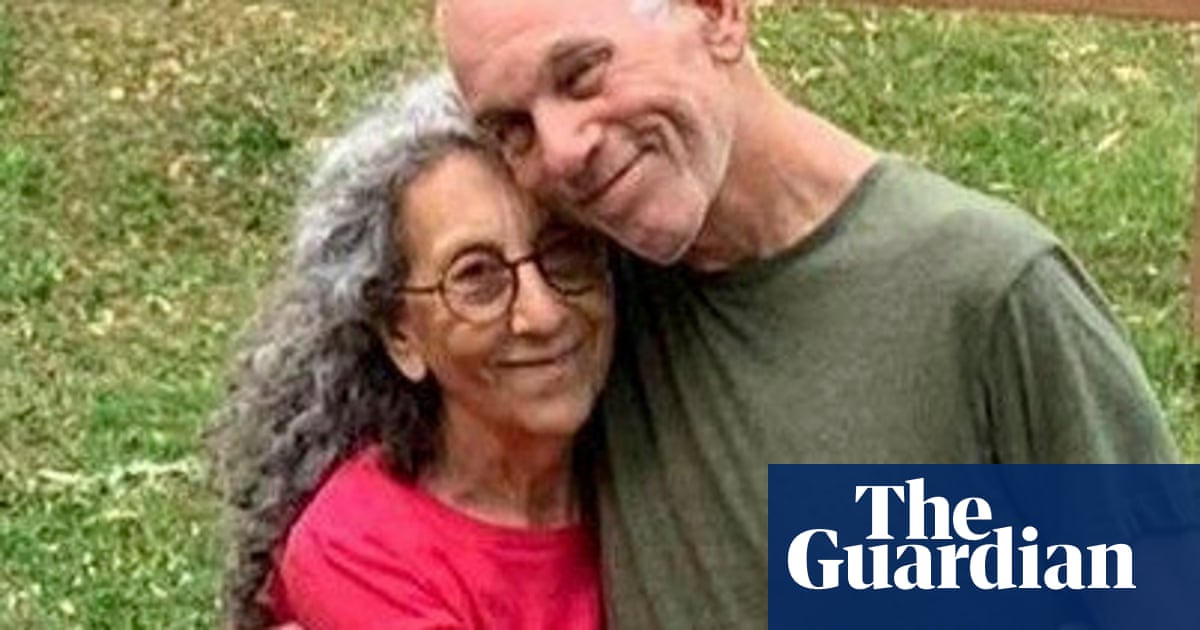Israel has recovered the bodies of two Israeli-American hostages who were killed and abducted in Hamas’s 7 October 2023 attack. The Israeli prime minister, Benjamin Netanyahu, said the remains of Judih Weinstein, 70, and Gad Haggai, 72, both of whom had Israeli and US citizenship, were returned toIsraelby the army and the Shin Bet internal security agency after an overnight operation in southern Gaza.
Their deaths had been announced in December 2023. “My beautiful parents have been freed. We have certainty,” their daughter, Iris Haggai Liniado, wrote in a Facebook post. She thanked the Israeli military, the FBI and the Israeli and US governments and called for the release of all the remaining hostages.
InGaza, food distribution points run by a US-backed group had meanwhile not re-opened by mid-morning after their closure on Wednesday after the killings by Israeli troops of dozens of civilians waiting for food. The US- and Israel-backed Gaza Humanitarian Foundation (GHF) had said its sites were undergoing maintenance and repair work.
Gaza’s civil defence agency said Israeli strikes on Thursday killed at least 10 people in the Palestinian territory.
The Israeli military said in a statement on Thursday that Weinstein and Haggai were murdered by gunmen from the Mujahideen Brigades, a small Palestinian group, when they attacked Kibbutz Nir Oz on 7 October 2023.
In a statement, the forum of the Israeli hostage families said: “The return of Judi and Gad is painful and heartbreaking, yet it also brings healing to our uncertainty. Their return reminds us all that it is the state’s duty to bring everyone home, so that we, the families, together with all the people of Israel, can begin the process of healing and recovery.’’
The forum stressed that decision-makers ‘‘must do everything necessary to reach an agreement that will return all 56 remaining hostages – the living for rehabilitation and the deceased for burial. There is no need to wait another 608 agonising days for this. The mission can be completed as early as tomorrow morning. This is what the majority of the Israeli people want.’’
At least 20 of the 56 remaining hostages are believed to be alive, according to Israel. Most of the hostages were released as part of deals with Hamas during two temporary ceasefires in late 2023 and early 2025.
Since the 7 October attacks, Israel has responded with an air and ground assault on Gaza that has killed more than 54,000 Palestinians, according to the Hamas-run health authorities, and reduced much of the territory to ruins as food supplies have also been blocked.
On Wednesday, GHF announced that its operations would be suspended for a second day on Thursday in order to improve civilian safety beyond the perimeter of its distribution sites after Israeli troops opened fire on a crowd of Palestinians,killing at least 27and injuring hundreds. GHF pressed Israel to improve civilian safety beyond the perimeter of its distribution sites.
The foundation initially said its operations would be suspended for a single day, but after security talks with the Israeli army on Wednesday, the group posted a message on social media, saying operations would not resume on Thursday. It did not say when the locations would reopen.
Reached by the Guardian, GHF’s spokesperson has not yet responded to a request for a comment.
Israelimposed a blockade on all suppliesin March, claiming Hamas was seizing deliveries for its fighters. The group denies this and aid officials in Gaza havedenied there is evidenceof any widespread diversion of supplies at any stage of the conflict. In May a global hunger monitor said half a million people in Gaza faced starvation in the months ahead.
